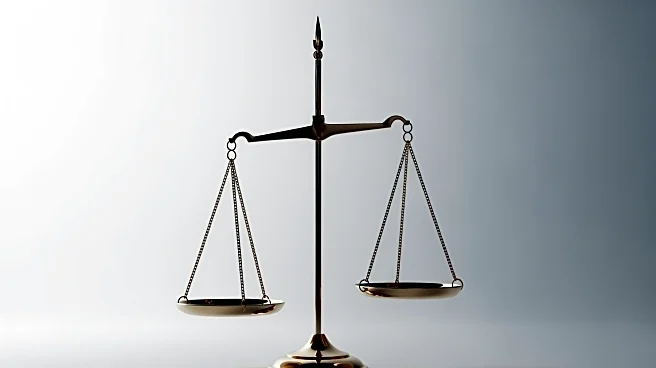What's Happening?
Bragar Eagel & Squire, P.C., a law firm specializing in stockholder rights, has filed a class action lawsuit against KBR, Inc. in the United States District Court for the Southern District of Texas, Houston Division. The lawsuit is on behalf of individuals
and entities who purchased or acquired KBR securities between May 6, 2025, and June 19, 2025. The complaint alleges that KBR made materially false and misleading statements regarding its partnership with the U.S. Department of Defense's Transportation Command (TRANSCOM) and the ability of its partner, HomeSafe, to fulfill a significant contract. Investors have until November 18, 2025, to apply to be appointed as lead plaintiff in the case.
Why It's Important?
The lawsuit against KBR, Inc. highlights significant concerns about corporate transparency and accountability, particularly in relation to government contracts. If the allegations are proven, it could lead to substantial financial repercussions for KBR and impact investor confidence. The case underscores the importance of accurate disclosures in maintaining trust in public companies, especially those involved in critical government partnerships. Investors who suffered losses due to the alleged misleading statements may seek compensation, potentially affecting KBR's financial standing and market reputation.
What's Next?
Investors who purchased KBR shares during the specified period and suffered losses are encouraged to contact Bragar Eagel & Squire to discuss their legal options. The firm is actively seeking individuals to join the class action and potentially serve as lead plaintiffs. The court will review applications and decide on the lead plaintiff appointment, which will guide the progression of the lawsuit. The outcome of this case could influence future corporate governance practices and investor relations strategies within KBR and similar companies.
Beyond the Headlines
This legal action may prompt broader discussions on the ethical responsibilities of corporations in their communications with investors, especially regarding government contracts. It could lead to increased scrutiny and regulatory oversight in the industry, potentially affecting how companies disclose information about partnerships and contract performance. The case may also influence legal standards for proving misleading statements and the consequences for corporate entities.
















